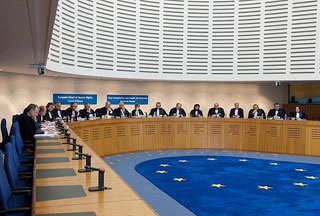Swiss Government to challenge ECHR’s ruling on Armenian Genocide denial case

The Swiss Federal Office of Justice has requested the European Court of Human Rights (ECHR) to review the case of Doğu Perinçek, earlier determining that the Swiss Courts’ rulings to impose financial and criminal fine for denying the Armenian Genocide was a limitation of the right for free expression.
On 9 March 2007, Turkish national Doğu Perinçek was sentenced in Canton Vaud to both a financial penalty and a criminal fine under Art. 261bis CC for denying the Armenian Genocide. The Cantonal Court of Canton Vaud and the Federal Supreme Court both rejected appeals against the judgment. In its ruling of 17 December 2013, the competent chamber of the European Court of Human Rights determined that the Swiss courts’ rulings violated the appellant’s right to freedom of expression.
Following the ECHR’s ruling, the International Institute for Genocide and Human Rights Studies, a division of Zoryan Institute, published a full-page informational advertisement that appeared in Switzerland’s leading German and French language newspapers Neue Zürcher Zeitung on March 6 and Le Temps on March 7. Through the juxtaposing of these two historical speeches, the Institute explained that while it does not disagree with the right to freedom of speech, it takes issue with the ECHR’s highly debatable statements about the Armenian Genocide that went far beyond the Court’s mandate or competence.
Following this publication and generated debate to dispute the ECHR’s ruling related to the case of denial of the Armenian Genocide, the Swiss Government announced it will appeal the ruling of the ECHR overturning the conviction of Dogu Perinçek for denying the Armenian Genocide. The decision was made by the Swiss Federal Office of Justice to ask the ECHR’s Grand Chamber to review the ruling in order to clarify the scope available to Swiss authorities in applying the Swiss Criminal Code to combat racism. The anti-racism law was created in 1995 in order to comply with the UN Convention on the Elimination of All Forms of Racial Discrimination.
The ECHR’s ruling and Swiss Government’s decision to appeal the ruling are very important both for the international recognition of the Armenian Genocide and the right of freedom of expression, whatever the outcome of the case may be. In both cases the ruling will result in a precedent in the ECHR that may be used in the future in international courts. On the one hand, if the Swiss Government’s appeal succeeds, it will establish a new precedent for future similar cases not only in Switzerland. On the other hand, if the ECHR determines and reaffirms that the Swiss Courts’ decisions have limited the right of free expression, this will result in a precedent that can be used to combat strict limitation on freedom of expression by the Turkish government through its Article 301, which limits not only recognition of the Armenian genocide by individuals inside Turkey but has even strictly controlled public opinion in relation to this matter.
Whatever the outcome of the case is, it may establish a good case law in international courts to support the right of free expression and combat pressure of the Turkish government on free public opinion looking into issues related to the Armenian Genocide in Ottoman Empire that massacred 1,5 million people in 1915.
By Kamo Mailyan

























